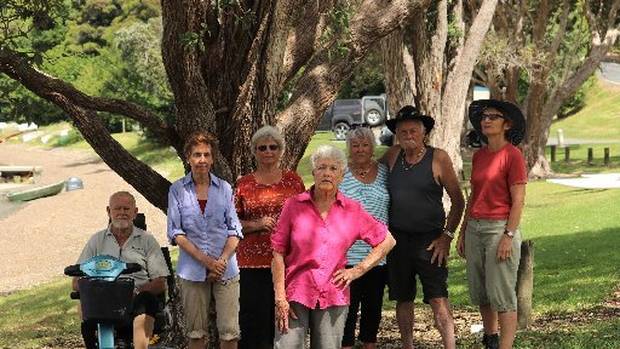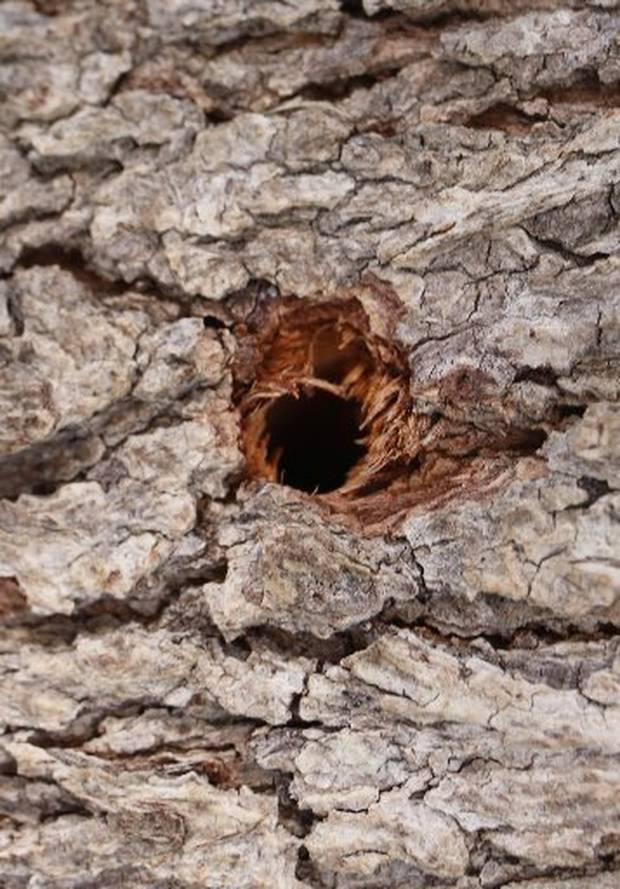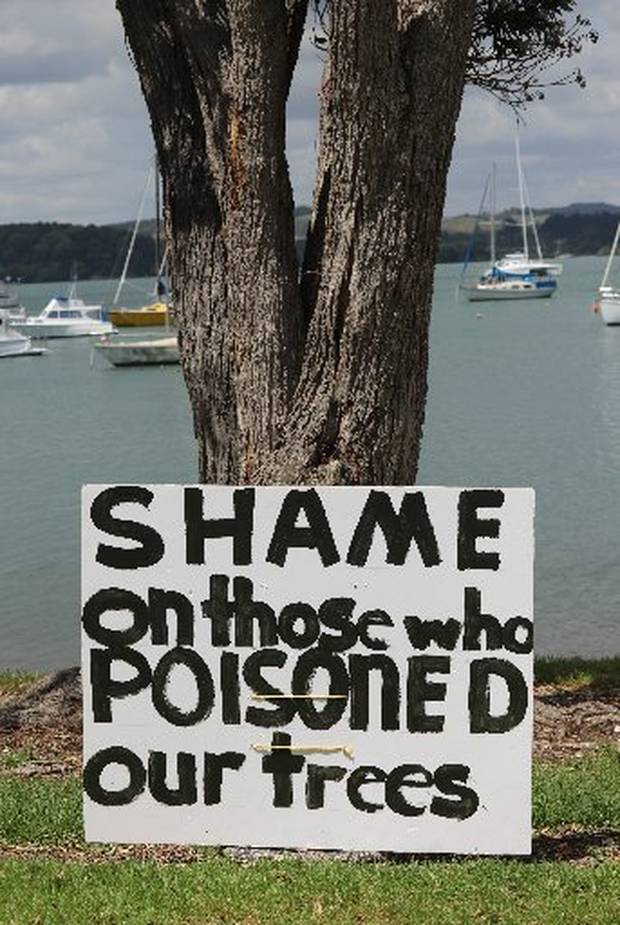
Outrage and suspicion are sweeping a small Far North community after the poisoning of a row of beachfront pōhutukawa.
In recent weeks residents of Opito Bay, on the northern side of Kerikeri Inlet, noticed some of their trees are ailing. Several branches on one pōhutukawa are dead while other trees are shedding leaves.
A few days ago, however, a local realised their roots were riddled with holes and alerted the Far North District Council.

An arborist inspected the trees on Wednesday and determined that someone had drilled holes in the roots and poured in poison.
The attack has shocked Opito Bay residents, who value the trees for their shade, prolific flowering and family history.
Yvonne Sharp, former Far North mayor, said she was shattered by the “disgusting and callous act of vandalism”. Her grandfather, Ralph Rowsell, bought the land at the tip of the peninsula about 65 years ago and many descendants still lived in the bay.
In the early 1970s the family planted a line of pōhutukawa trees along what used to be a “bleak and barren” shore to offer shade to families. The trees were now almost 50 years old and at least 15m tall.
The arborist told her the four affected trees, at the western end of the beach starting opposite Tikorangi Rd, would almost certainly die.

Sharp would not speculate on who could have poisoned the trees or why.
“I guess everyone has their thoughts … I do know that all our family members are aghast, they’re horrified. These trees mean a lot to us.”
She had been heartened, however, by people’s reactions as word spread of the attack.
A relative at the bay, Sue Rowsell, had seen a woman get out of her car, give the tree a tearful hug, and place flowers at its base.
Jenny White, Sharp’s sister, was also concerned about the effect on the tight-knit Opito Bay community.
“We’re going to get finger-pointing … It will create suspicion within the bay, which we’ve never had. It’s upsetting to think someone in our community could have done such a villainous thing.”
The trees’ demise would also make the shore vulnerable to erosion, she said.
Far North District Council asset manager Andy Finch said the trees would be inspected once a month with branches removed as they became unsafe.
Staff had spoken with Opito Bay residents in an effort to identify those responsible. He urged anyone with information to contact the council, confidentially, on [email protected].
In 2015 the previous government removed blanket protection for all trees on private urban land, except those listed as notable trees or in significant ecological areas.
However, the Opito Bay pōhutukawa are on a council reserve so are protected by the Resource Management Act and the Reserves Act.
Anyone found to have poisoned the trees could be prosecuted under either act. The RMA provides for fines of up to $300,000.
Earlier this month an Auckland man who lopped a pōhutukawa on his property was sentenced to 300 hours community service and fined $3500 because it was within a significant ecological area.



